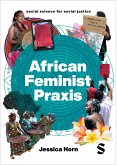This work is the doctoral thesis of a black woman who, during her academic career, based on her history as a social worker in education, analyzed the effects of affirmative policies (Quota Law) on race and gender in engineering courses at two federal universities in Paraná. The methodology used was a cognitive analysis and also the production of quantitative data relating to racial quotas, access for black students, men and women in engineering, as well as comparative research. We chose to use the term "affirmative policy" to refer to a public state policy and "affirmative action" to refer to initiatives by civil society, organized or not, both aimed at social justice involving discriminated racial groups. The book sets out to think about the importance of gender and race research in countering the political hegemony of black women, taking into account access to the various areas of knowledge, which is why the analysis used theoretical references from leading black feminist researchers, who are little known in various academic circles.
Bitte wählen Sie Ihr Anliegen aus.
Rechnungen
Retourenschein anfordern
Bestellstatus
Storno








